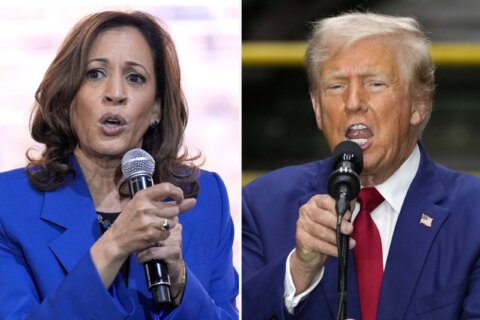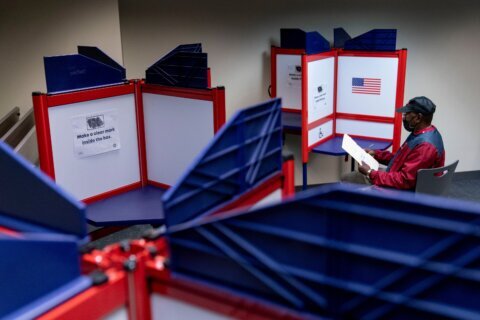Sign up for WTOP’s Election Desk weekly newsletter to stay up-to-date through Election Day 2024 with the latest developments in this historic presidential election cycle.
Just before millions of Americans began casting their ballots for the 2024 presidential election, betting on U.S. elections opened up, with a U.S. District Court decision giving the green light to the practice.
For example, KalshiEX LLC, which sued the Commodity Futures Trading Commission to be able to allow financial contracts that bet on events, now allows bets of up to $100 million.
But Rajiv Sethi, a professor of economics at Barnard College, Columbia University, says betting on election outcomes should not be confused with traditional political polling.
“You can’t compare conventional pollsters to the outcomes of the betting markets, because conventional pollsters don’t give you a probability of victory for a candidate,” he said.
Kalshi is not the only company allowing users to place bets on the election. Interactive Brokers and stock trading platform Robinhood also entered the electoral betting arena.
“Even prior to the appeals court decision, Kalshi versus the CFTC case, there was a crypto-based exchange, Polymarket, which had contracts listed (for both congressional elections and the presidential race),” Sethi told WTOP.
But it’s not legal for U.S. residents to bet on that platform.
Referring to Polymarket, Sethi said, “Formally, they’re not supposed to be accepting deposits for U.S. nationals.”
But, he said, it’s possible for American citizens to travel overseas and then trade on Polymarket: “And they used to trade using (virtual private networks, but) the exchange is now clamping down on that, they’ve got some VPN detection.”
Just as the securities industry is regulated to prevent insider trading, Sethi said Kalshi does have restrictions in place. He explained that Kalshi limits users to U.S. nationals, and also excludes campaign staff, people who are working for congressional representatives, “and they exclude people who are working for the Supreme Court or decision desks of media organizations.”
Sethi said surveys have historically shown that the people doing the most betting “skews heavily male.”
There are fears that betting on elections could generate efforts to manipulate the outcome of a given race.
“It’s possible,” said Sethi. “If the belief starts to become widespread that a candidate is losing viability or is likely to lose, that can cause morale to drop among the voters, it can cause donors to walk away, it can cause turnout to decline.”
But, he said, “Manipulation, historically, has not been a hugely severe problem. … It does exist. It does arise from time to time.”
“There hasn’t been, as far as I’ve seen, any evidence that movements in the market actually gave rise to particular outcomes that wouldn’t otherwise have arisen,” Sethi added.







